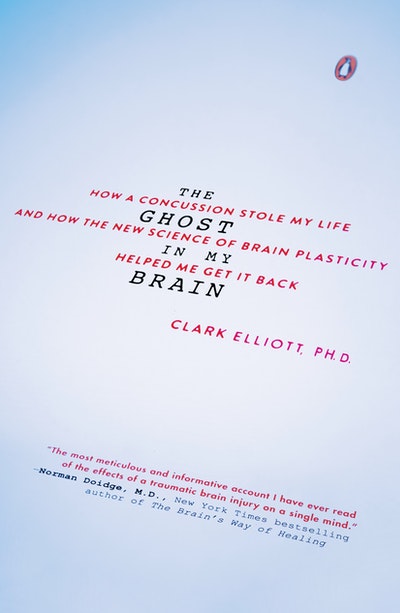The Ghost in My Brain
How a Concussion Stole My Life and How the New Science of Brain Plasticity Helped Me Get It Back
- Published: 2 June 2015
- ISBN: 9780698150140
- Imprint: PEN US eBook Adult
- Format: EBook
- Pages: 336
"This wonderful story is inspiring. A professor of artificial intelligence loses much of his higher function after an auto accident. Numerous specialists diagnose a concussion and tell him to "get over it"---no small assignment for a professor and single father. He is ultimately referred to a neurooptometrist who studies both the visual and the non-visual roles of the retina for the brain. Through exercises and progressive changes of glasses, his visual and mental function are restored and his professional and personal life regained. Read it, first weep, then smile broadly!"
--Daniel Federman, Former Dean, Harvard School of Medical Education. Past president of the American College of Physicians
"Through Dr. Elliott's meticulous records of his experience and unusual perseverance, we see not only the difficulties current healthcare practices have in the diagnosis, counseling, and treatment of such a debilitating condition, but he sheds light into fascinating ways our brains can recover. The book is a must read for anyone in emergency medicine, trauma care, neurology, and primary care, as well as concussion sufferers and their families. This book will change how healthcare workers care for patients with both mild and serious head injuries, as well as provide better understanding by those that are close to the concussed. It has made me a better clinical instructor and diagnostician by improving my index of suspicion for brain injury, helped me provide better advice to patients and their loved ones, and motivated me to develop a better standard of care in my practice."
--Ted C. Shieh, M.D., F.A.C.E.P., Clinical Instructor in Emergency Medicine, RUSH Medical College, Chairman of Emergency Medicine and Immediate Care, DuPage Medical Group
"Dr. Clark Elliott does an incredible job of captivating his reading audience and then skillfully introduces them to the altered world of a Mild Traumatic Brain Injury (MTBI) patient. His comprehensive and creative analysis of this pathological epidemic is uniquely insightful, accurate, scar--and most importantly encouraging--for those who are afflicted with this disorder. If you are a health care provider that treats trauma cases this is a 'Must Read'.... Dr. Elliott's remarkable descriptions bring to life the most vivid experience of this kind of trauma--from the peculiar sense of alienation, to strange symptoms like OCD, and even to the loss of one's spiritual life. Together they form a clear roadmap for parents, spouses, coaches, and physicians alike to understand MTBI."
--Michael P. Szatalowicz D.C., Whiplash Trauma Specialist



